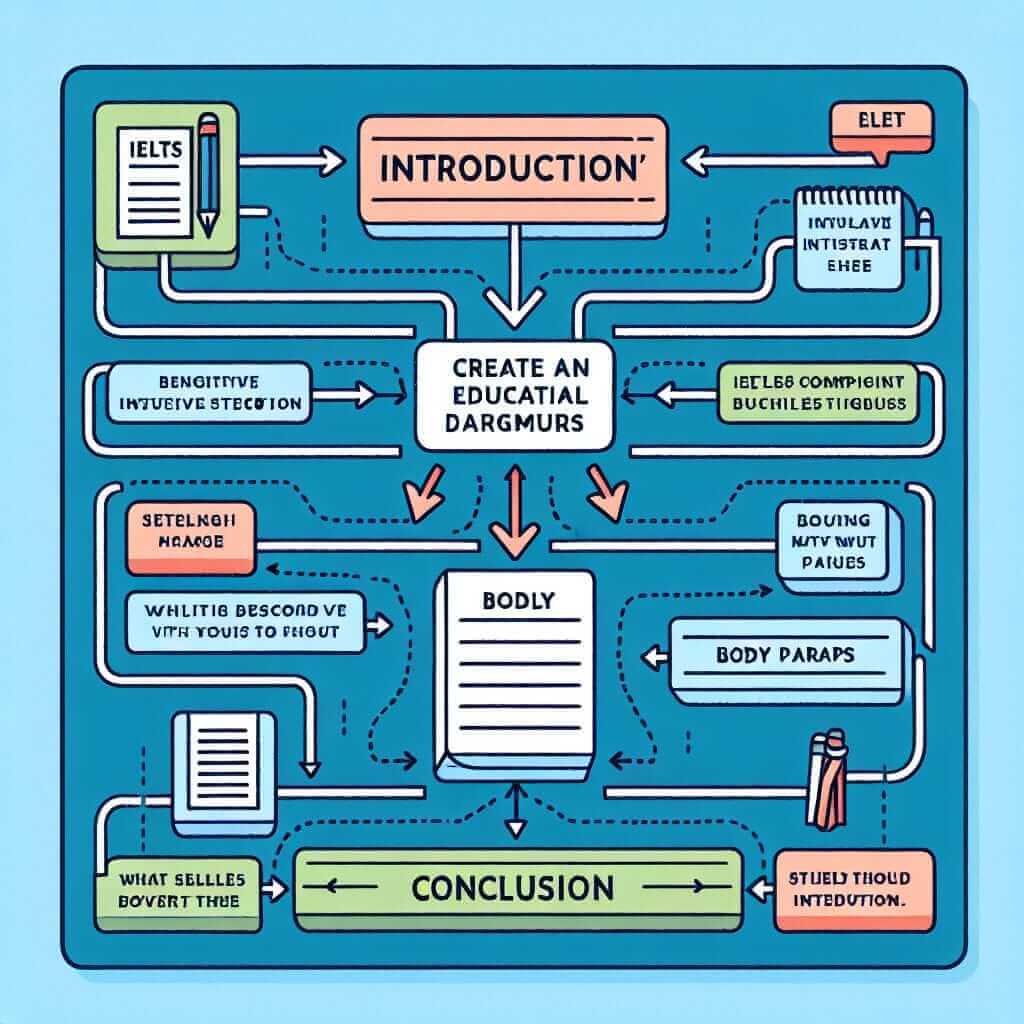Achieving a high score in the IELTS Writing test requires a strategic approach, dedicated practice, and a strong grasp of the English language. As an IELTS instructor with over 20 years of experience, I’ve helped countless students excel in this section. In this comprehensive guide, we’ll delve into proven strategies and insider tips to empower you to write effectively and confidently on test day.
Understanding the IELTS Writing Test
The IELTS Writing test assesses your ability to communicate in written English across different contexts. It consists of two tasks, each requiring a distinct writing style and approach:
Task 1 (Academic): You’ll be presented with a visual representation of information (graph, chart, diagram, or process) and asked to summarise and describe the key features in your own words (150 words minimum).
Task 2 (Academic & General Training): You’ll be given an essay prompt requiring you to provide your opinion, discuss different viewpoints, or propose solutions (250 words minimum).
Key Strategies for Success
1. Mastering the Fundamentals
Grammar and Vocabulary: A strong foundation in English grammar and a wide-ranging vocabulary are non-negotiable.
- Tip: Regularly review grammar rules, particularly tenses, articles, and subject-verb agreement. Expand your vocabulary by learning synonyms, collocations, and topic-specific words.
Sentence Structure and Cohesion: Well-structured sentences and cohesive paragraphs are essential for clarity.
- Tip: Practice using different sentence structures (simple, compound, complex) and linking words (however, therefore, in addition) to enhance the flow of your writing.
Planning and Organisation: A well-structured response is easier to read and understand.
- Tip: Before you start writing, take a few minutes to plan your essay. Jot down key ideas, supporting arguments, and a logical structure.
2. Task-Specific Strategies
Task 1 (Academic):
- Analyse the Visual: Carefully examine the provided visual and identify the key trends, patterns, and significant details.
- Paraphrase: Use your own words to describe the information; avoid copying directly from the question.
- Focus on Accuracy: Ensure your description is accurate and reflects the data presented.
- Time Management: Aim to complete Task 1 within 20 minutes.
Task 2 (Academic & General Training):
- Understand the Prompt: Carefully read the essay question and identify the key keywords and your required task (e.g., argue, discuss, analyse).
- Develop Your Position: Establish a clear stance on the topic and provide relevant arguments to support your viewpoint.
- Use Evidence and Examples: Strengthen your arguments with concrete examples, statistics, or personal anecdotes (where appropriate).
- Time Management: Allocate 40 minutes for Task 2, allowing sufficient time for planning, writing, and revising.
3. Exam Skills and Practice
Time Management: Practice writing under timed conditions to simulate the exam environment.
Handwriting: If taking the paper-based test, ensure your handwriting is legible.
Proofreading: Always reserve a few minutes at the end to review your writing for errors in grammar, spelling, and punctuation.
Example: Analysing an IELTS Writing Task 2 Prompt
Prompt: “Some people believe that the best way to learn a foreign language is to immerse oneself in the culture where it is spoken. Others argue that technology makes it possible to learn a language effectively from anywhere in the world. Discuss both views and give your own opinion.”
Analysis:
- Keywords: foreign language, immerse, culture, technology, learn effectively
- Task: Discuss both viewpoints (immersion vs. technology) and provide your own opinion.
Possible Structure:
- Introduction: Introduce the topic of language learning and briefly state both sides of the argument.
- Body Paragraph 1: Discuss the benefits of language immersion (e.g., real-life practice, cultural understanding).
- Body Paragraph 2: Discuss the advantages of using technology (e.g., accessibility, personalised learning).
- Conclusion: Summarise both viewpoints and state your own opinion, providing reasons for your stance.

Common IELTS Writing Mistakes and How to Avoid Them
1. Lack of Planning: Failing to plan your essay can lead to a disorganized and incoherent response. Always take a few minutes to brainstorm ideas and structure your thoughts.
2. Copying from the Question: Avoid using the same wording from the question. Paraphrase information using synonyms and different sentence structures.
3. Ignoring Word Count: Not meeting the minimum word count for each task will negatively impact your score.
4. Overusing Templates: While templates can be helpful, relying on them excessively can make your writing sound unnatural.
5. Neglecting Proofreading: Errors in grammar, spelling, and punctuation can lower your score. Always proofread carefully before submitting your answers.
Conclusion
Success in the IELTS Writing test is achievable with focused effort and consistent practice. By mastering the fundamentals, understanding task-specific strategies, and refining your exam skills, you can approach the writing section with confidence and achieve your desired score. Remember, consistent practice is key to improvement. Best of luck!